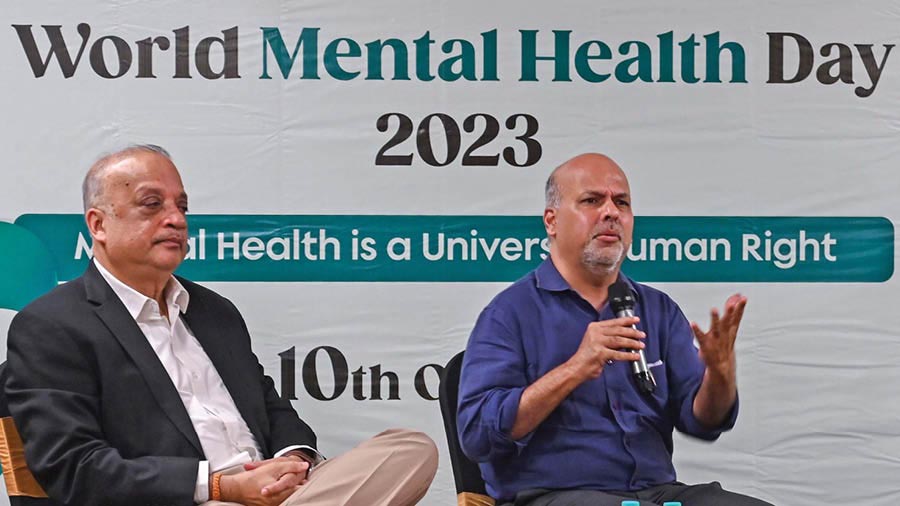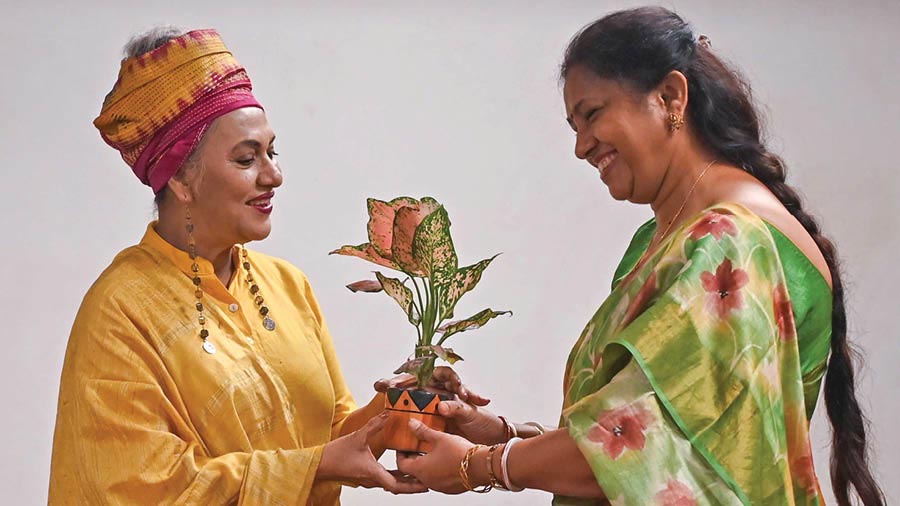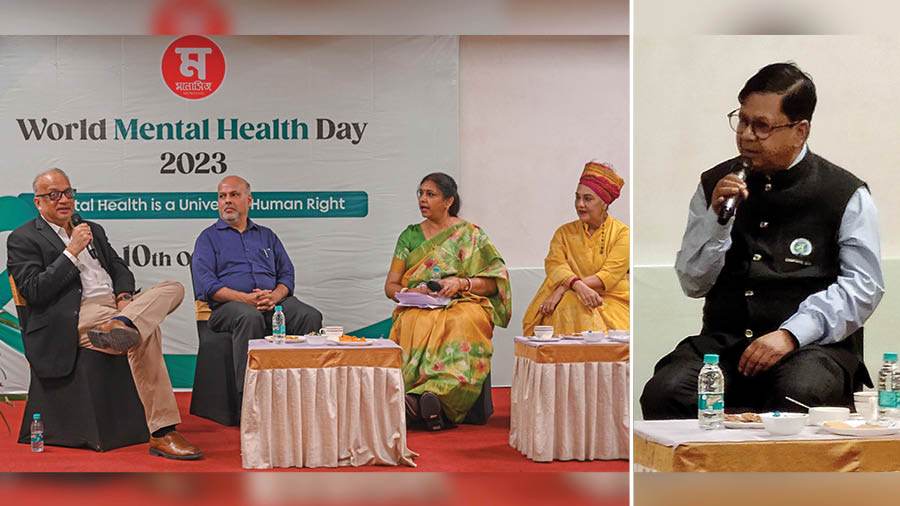The defining difference between life pre and post 2020 is that people have started looking at health more holistically. In addition to physical health, the conversation around mental health has also found new dimensions. Monoshij, the mental health platform of Techno India Group, took the conversation even further on October 10 with a panel discussion on ‘Normalising Mental Health’ to mark World Mental Health Day, on the varsity’s campus in Sector V.
On the panel were New Town Kolkata Development Authority (NKDA) chairman and West Bengal Housing Infrastructure Development Corporation Ltd (WBHIDCO) director, Debashis Sen; psychiatrist and joint director of Mental Health Foundation Kolkata, Dr Jai Ranjan Ram; senior vice-chairman and chief cardiac surgeon at Medica Superspecialty Hospital, Dr Kunal Sarkar; and dancer and social reformer Alokananda Roy. The discussion was moderated by Techno India Group co-chairperson, Manoshi Roychowdhury.

Dr Kunal Sarkar and Dr Jai Ranjan Ram
Sen started the session by admitting that he had asked Chat GPT for talking points and that the AI platform’s top suggestion was to support friends and family. “If you want to create a healthy mental environment and prevent the onset of mental illnesses, a support system is vital,” he said.
A similar idea made Sen tweak New Town’s plan to include parks and spaces to stay for senior citizens. “We are working on another initiative that will bring the youth and elderly together for storytelling sessions and re-establish a bond between them to combat loneliness,” he added, inviting elderly citizens to talk about their stories more openly.
Ram shed light on an accidental positive impact of the pandemic, where everyone became more aware about mental health, and started giving it as much importance as their physical health. “There is still a lot of stigma around mental health, and we often see mental illnesses in a negative light. This stigma comes from judgement, and will only break when we put in effort to get to know the lives of different people, be it from different sexualities, disabilities, classes or castes. We will never understand their challenges unless we take the initiative to learn,” he added.
Ram encouraged the audience to engage in micro-acts of kindness towards others to enable a positive environment. “If a student fails, please reassure them that you care about their overall development. If your friend is going through a tough time, don’t just give them likes on Instagram, actually call them up and check in. A sense of well being comes from connecting with someone.”
Roy drew inspiration from her work with convicts, helping them reform through dance. “I tried to connect with their human side through dance and rhythm, and realised that everyone craves love and acceptance. I always tell boys that if they are feeling bad, they should let out those emotions. To protect young girls, we must also sensitise, protect and love young boys,” he smiled, adding that her motherly love towards her subjects had led her to feel the safest in jails, while working with them.
Sarkar drew attention to the importance of preventive care, and the challenge of distributing it universally across income groups and social classes. “I have seen 50 patients this morning where every alternate person was diabetic. People are so scared and unaware of the ecosystem that they haven’t got their sugar checked in years. Instead of investing in capital for surgery, we must focus on preventive care.” He assured the audience that this was possible, citing examples of how India had reduced infant mortality by 200% and maternal mortality by 300% in two decades. “We must take time out of our air-conditioned and sanitised ecosystem, and get behind policy makers to make mental health accessible for everyone. Mental health isn’t an urban or western concept, neither is it a fashion accessory,” he said.

Manoshi Roychowdhury presented a plant to Alokananda Roy
Roychowdhury wrapped up the proceedings by encouraging the students to think about what brought them joy. “In schools, the focus is on getting good marks, and in college, the pressure is on getting a good job. In the midst of this, children are never taught anything about happiness. But it is essential to focus on your own happiness, as only mental wellbeing will allow you to study and work more efficiently,” she concluded.
